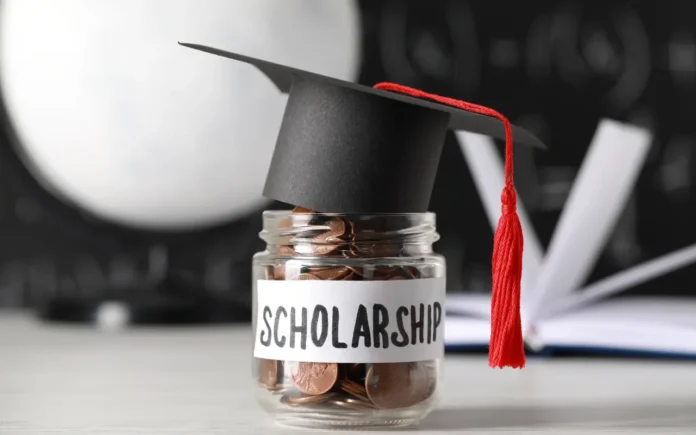
Making educational choices for your child involves weighing both immediate needs and long-term outcomes. When it comes to choosing a public or private school, many parents consider the financial aspect to be one of the most significant determining factors in their child’s educational trajectory.
Financial aid for private schools exists to allow your child to attend an elite school without breaking the bank.
How Financial Aid for Private Schools Transforms Educational Outcomes
When families consider private education but hesitate because of cost concerns, they may not realize how tuition assistance programs can bridge the gap between their financial reality and their educational aspirations.
The College Readiness Advantage
One of the most compelling arguments for seeking tuition aid for private schools relates to college preparation. According to data from the National Association for College Admission Counseling (NACAC), the difference in college enrollment rates between private and public school graduates is striking:
- 94.9% of private high school graduates enroll in four-year colleges
- Only 49.6% of public high school graduates pursue four-year degrees
This dramatic difference in four-year college enrollment—nearly twice the rate—translates to significant differences in career opportunities and earning potential.
Private school students also report feeling better prepared for college-level work. 71% feel well-prepared for college academics, compared to just 39% of public school students.
For many families, accessing these college readiness benefits through need-based financial aid programs makes private education a strategic investment rather than simply an expense.
Building Confidence and Ambition
A longitudinal study by the UCL Institute of Education found that private school students scored seven points higher on self-esteem surveys than their public school peers by age 10. They demonstrated greater willingness to pursue challenging career opportunities with advancement potential by age 16.
Early Educational Investment: The Long-Term Financial Return
Parents considering tuition aid for private schools often wonder whether the investment will truly pay off in measurable ways. Research provides compelling evidence that it does, with benefits extending far beyond graduation day.
The Income Differential Reality
Studies consistently demonstrate income advantages for private school graduates:
- According to the Institute for Fiscal Studies, private school graduates earn up to 17% more than public school graduates with similar university degrees and job descriptions
- Even after adjusting for factors like university choice, private school graduates still maintain a 6.7% earnings advantage
- Research from the Sutton Trust, out of the UK, found that just three and a half years after graduation, private school graduates in top jobs earn £4,500 more than their state school counterparts
- These salary advantages accelerate over time, with private school graduates seeing their salaries grow by £3,000 more over the same three-year period
These statistics underscore that tuition aid for private schools doesn’t just facilitate educational access—it opens pathways to significantly better lifelong earning potential.

Beyond Income: Career Advancement Patterns
The professional advantages extend beyond initial salary differentials. The Association of Boarding Schools survey revealed that 36% of private school students pursued graduate education, compared to just 21% of public school students.
Furthermore, 33% of private school graduates with advanced degrees secured top management positions, versus 27% of public school graduates.
These advancement patterns mean that the financial benefits of private education compound over time. A modest investment in tuition, supplemented by financial aid for private schools, can yield substantial returns throughout a student’s career trajectory.
What Drives Superior Outcomes
Understanding exactly how private education transforms outcomes helps explain why tuition assistance represents such a valuable opportunity. Several specific educational factors contribute to the long-term advantages.
The Small Class Size Effect
Private schools typically maintain smaller class sizes—an average of 19 students versus 22 in public schools. This seemingly small difference has outsized impacts:
- Students in classes with fewer than 20 students show achievement gains equivalent to advancing two months ahead of peers in larger classes
- These advantages translate to a 7.3% increase in earning potential and improved university access
- Individual attention allows teachers to identify and address learning gaps before they widen
Financial aid makes these small-class advantages accessible to students from diverse economic backgrounds, helping ensure that all children can benefit from more individualized instruction.
Arts and Enrichment Access
While public schools often reduce arts and music programs during budget constraints, private schools typically maintain robust offerings in these areas.
This preservation matters because:
- Students in music programs score 63 points higher on verbal assessments and 44 points higher in mathematics
- According to Americans for the Arts, students with at least nine hours weekly in arts programs are four times more likely to receive academic and creative recognition
- Arts participation correlates with higher rates of academic competition and advanced achievement
Through tuition aid for private schools, students gain access to these enrichment opportunities regardless of family financial circumstances, strengthening their educational foundation and future prospects.
Navigating Tuition Aid for Private Schools
For families convinced of the long-term benefits of private education but concerned about affordability, understanding the available tuition aid options is essential.

Types of Financial Aid Available for Private Schools
Need-Based Aid: Most private schools dedicate substantial resources to needs-based financial aid, using family financial assessments to determine appropriate award amounts. These programs aim to make education accessible regardless of economic circumstances.
Merit Scholarships: Many institutions offer merit-based awards that recognize academic excellence, artistic talent, leadership potential, or other special abilities. These scholarships may complement need-based aid or provide options for families that don’t qualify for need-based assistance.
Flexible Payment Plans: Payment scheduling can spread tuition costs throughout the year, making budgeting more manageable without reducing the overall investment.
Endowed Funds: Many private schools maintain specialized scholarship funds targeting specific student populations or interests, creating additional avenues for support.
Planning for Long-Term Educational Success
Families seeking to maximize private education benefits should approach financial planning strategically:
- Start Early: Begin researching schools and aid options at least 12-18 months before planned enrollment
- Understand Total Costs: Consider not just tuition but all associated expenses when calculating needed support
- Maintain Academic Records: Strong academic performance opens more merit scholarship opportunities
- Communicate Special Circumstances: Financial aid officers need complete information about your family’s situation to provide appropriate support
- Consider the Full Educational Timeline: Plan for the entire educational journey, not just the first year
This strategic approach ensures that families can access and maintain the financial support needed to secure private education’s long-term benefits.
Making Education Decisions with the Future in Mind
Families should balance immediate financial concerns with long-term educational outcomes when considering tuition aid for private schools. The statistical evidence clearly demonstrates that private education, made accessible through financial assistance, creates lasting advantages for students.
These advantages aren’t limited to privileged populations— in fact, research indicates that graduates from less privileged backgrounds who access private education are marginally more likely to remain in high-status jobs, with 71% still in such employment three and half years after graduation (compared to 65% for more privileged peers).
While paperwork and financial disclosures may seem daunting in the moment, the long-term returns— measured in academic preparation, career advancement, and earnings potential— make the process worthwhile.
By pursuing financial aid for private schools, families aren’t just finding ways to afford next year’s education—they’re making strategic investments in their children’s lifelong success.
Further Reading









